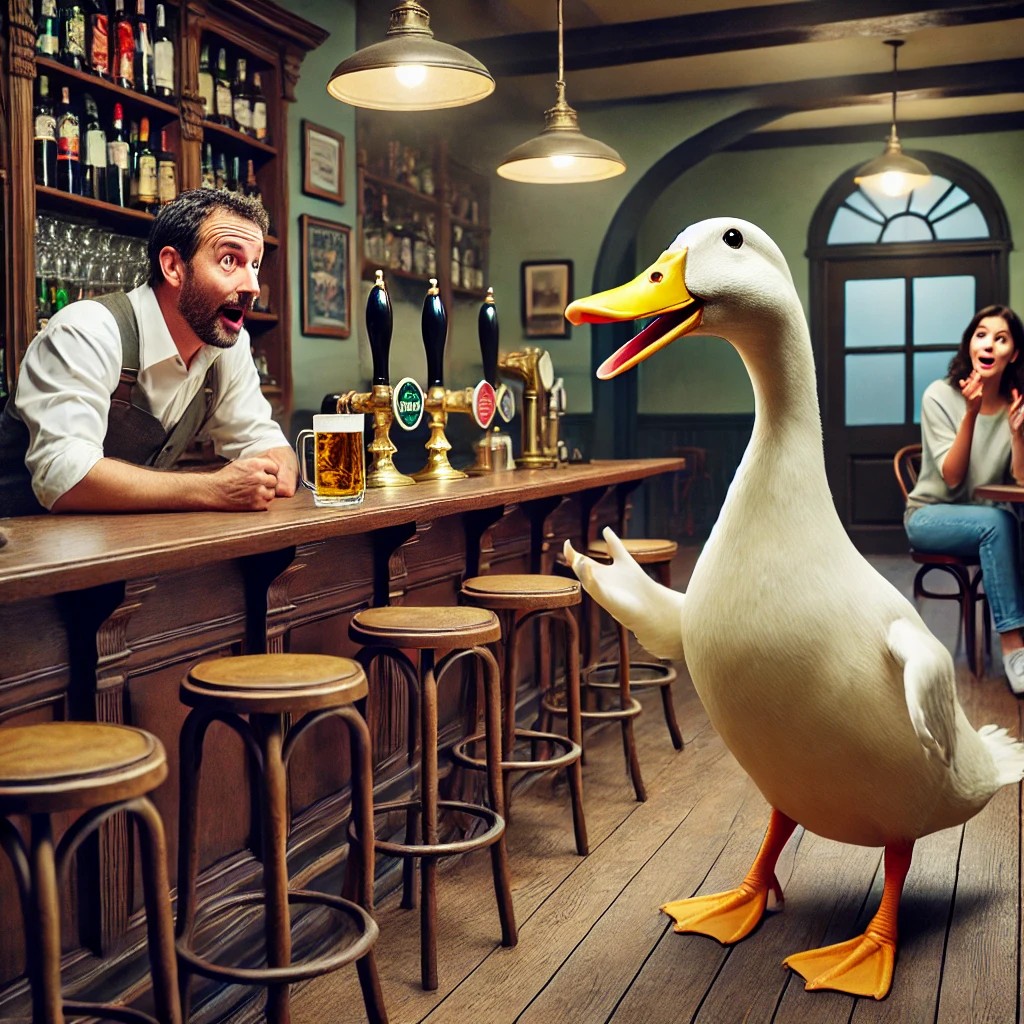
A duck walks into a bar and orders a combo plate. When a customer hears him, he says, "This is incredible! A talking duck!"
"So what?" asks the duck. "You can talk too."
"That's true," says the customer. "But how come you came to this bar?"
The duck replies, "I'm a bricklayer. I've been working across the street for a few days."
When the duck finishes his meal, he pays, but before he walks out the door, the customer goes up to him and says, "Wait! I'm a circus owner. Would you like to work for me?"
And the duck replies, "Why in the world would a circus need a bricklayer?"
A little butterfly tells her mother, "Mom, I think I'm in love."
The mother asks in surprise, "How do you know?"
"Because I feel like I have hundreds of little people in my stomach."
Two sisters are walking in a park, playing with flowers, when one asks, "What animal goes 'zzub, zzub'?"
"I don't know," the other sister answers.
"A bee flying backwards."
There was an oh-so-educated fly that only fell into alphabet soup.
A young boy studies dinosaurs in school and asks his father, "Dad, what would happen if we crossed a dinosaur and a pig?"
The father replies, "Well, you would get a jurassic pork."
Some of the jokes I've told so far are terrible, but they're such a useful tool for practicing conversation. They're always packed with colloquialisms, interjections, idioms, and other phrases you won't find in academic writing like articles, essays or narratives.
Fun!
@Coral well done! The jurassic pork joke reminded me of recently learning the Spanish word porquería, which I can't help but associate with pork :) I also like your use of the present tense - I think that's the natural choice for these kinds of jokes.
Thank you , @T-Newfields, @elAmericanoTranquilo!
Yes, "porquería" and "pork" are related. We use it to say something is dirty or low quality, or to say someone looks bad, because they're exhausted or sick. But in this case we say Estás hecho una porquería, NO Eres una porquería. There's a big difference in meaning between the two.